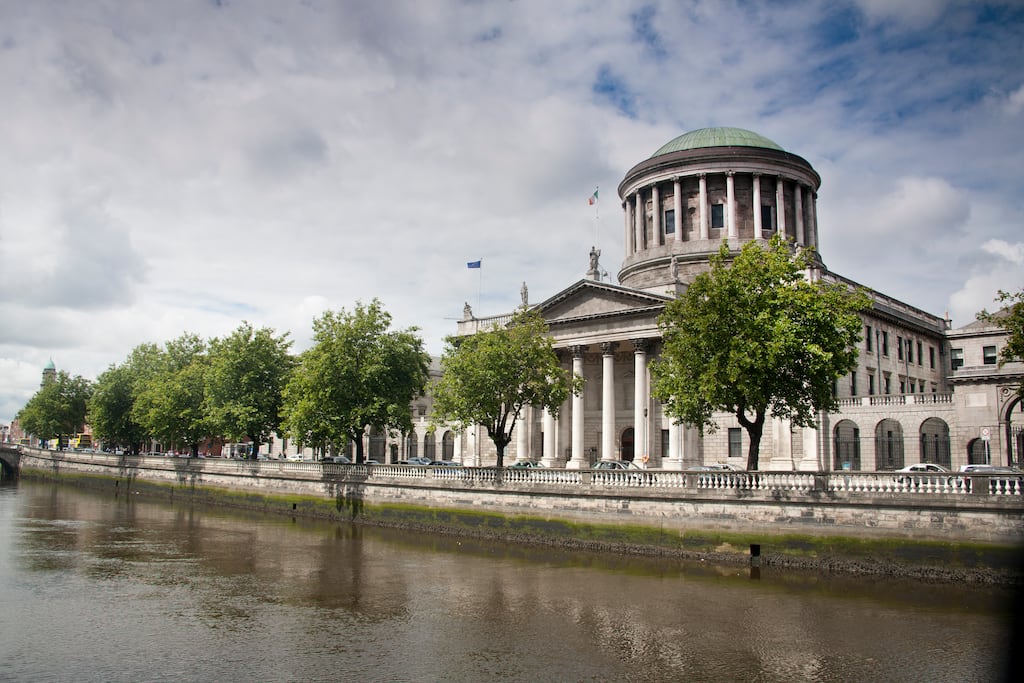A Co Wexford school principal who was unfairly dismissed and endured “terrible injustice” over more than 11 years due to “disastrous and unreasonable misjudgments” by his school’s board of management must be immediately reinstated to his post, a High Court judge has ordered.
The least Aodhagán Ó Suird can expect “is that his name be cleared, his reputation restored and that he is reinstated to his former position” as principal of Gaelscoil Moshíológ in Gorey, Mr Justice Brian Cregan said.
He was “entitled to walk back through the front gates of the school with his head held high and to resume the position of which he was so wrongfully deprived 11 years ago”.
The people responsible for “this debacle” are Melanie Ní Dhuinn, chairwoman of the school’s board of management (BOM) and the board itself, the judge said.
READ MORE
Their “disastrous and unreasonable misjudgments” removed the leadership of the interdenominational school and left it without its founding principal for a number of years.
Those misjudgments have now created a situation where the school might have two principals; exposed it to “significant” legal costs; resulted in “enormous damage” to Mr Ó Suird’s reputation by making “utterly unfounded” allegations of fraud concerning pupil enrolment figures and dismissing him; and damaged the “great progress” the school had made between 2002 and 2012.
Ms Ní Dhuinn became chairwoman of the BOM in December 2011, he said. “Within weeks she had destroyed all the work done by her predecessors. It is a shocking legacy.”
The judge also criticised evidence given to the Labour Court concerning Mr Ó Suird by Malcolm Byrne, now a Fianna Fáil Senator.
A member of the BOM between late 2011 to 2015, Mr Byrne chaired a BOM hearing which decided on Mr Ó Suird’s dismissal and he gave evidence to the Labour Court opposing the latter’s appeal against his dismissal.
In his recently delivered 135-page judgment, the judge rejected the BOM’s appeal against a Labour Court finding that Mr Ó Suird was unfairly dismissed.
Mr Ó Suird should be reinstated to his position, with all his salary and pension entitlements, from January 2013, when his administrative leave should have ended, the judge directed. He will hear submissions later on the precise orders to be made and on costs.
Mr Ó Suird was put on administrative leave on January 20th, 2012 after an incident some days earlier where he lost his temper with a first-class pupil and, while the boy was seated, “physically pulled him towards” him by his jumper. He described his actions as “entirely wrong”.
The boy’s parents within days accepted Mr Ó Suird’s apology and considered the incident a “minor” one. Complaints by some other parents about the same incident, apparently based on what their children told them, led to Mr Ó Suird being placed on administrative leave by the BOM without it hearing his side of the story, the judge said.
Ms Ní Dhuinn, and later the BOM, concealed from Mr Ó Suird “enormously significant” evidence, letters from a solicitor for the boy’s parents reiterating, inter alia, they regarded the incident as minor and describing the board’s referral of the matter to the Health Service Executive as “excessive”.
The HSE investigation concluded in November 2012 the matter did not rise to the level of physical abuse of a child and recommended the school carry out its own investigation.
Ms Ní Dhuinn failed to do that and instead began to investigate other issues relating to pupil enrolment figures forwarded to the Department of Education, the judge said.
In a letter of May 2013, Ms Ní Dhuinn, for the first time and without notice to Mr Ó Suird, raised the issue of fraud concerning enrolment numbers provided to the department. He was suspended and in August 2015 was dismissed as principal with effect from November 2015.
A BOM disciplinary appeal panel dismissed his appeal over his dismissal but the Workplace Relations Commission and later the Labour Court found in his favour, ruled his dismissal was unfair and ordered his reinstatement. The BOM then appealed to the High Court.
The judge noted Mr Ó Suird at all times disputed any fraud and had stated, while there might have been some overstatement of enrolment figures, this was done for the benefit of the school and with full knowledge and approval of the then BOM.
The evidence to that effect was “overwhelming”, he said. There was no evidence of fraud and no finding of fraud was made either by the BOM disciplinary panel, an independent disciplinary appeals panel or the Labour Court.
By making the allegations, refusing to withdraw them until very late in the day and failing to provide a comprehensive report on them, the actions of Ms Ní Dhuinn and the BOM were “completely unreasonable and indefensible”. The Labour Court finding that there was an “animus” against Mr Ó Suird by the BOM and Ms Ní Dhuinn was justified, he found.
It appears Mr Ó Suird was dismissed because he had included nine children in the enrolment returns to the department in September/October 2009, he said. All nine children existed in real life and had attended the school but were no longer doing so.
Mr Ó Suird did what he did with the full knowledge, consent and approval of the then board and based on advice he received from the National Education Welfare Board and Irish Primary Principals’ Network which was required because of the legislative confusion surrounding enrolment matters. He did so for the benefit of the school and not for any personal benefit to himself.
The judge noted evidence of a “grey area” surrounding enrolments until a 2013 circular from the department provided clarity and that many schools were behaving outside the law before that.
He was critical of the “unacceptably long” time taken to reach this stage and paid tribute to Mr Ó Suird and his legal team of solicitor Robert Dore, the late Frank Callanan SC, Padraic Lyons SC and barrister Hugh McDowell.










